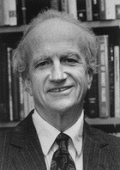Gary Becker (December 2, 1930 – May 3, 2014) has changed the economic profession like few before him. With his brilliant work on human capital and the economics of the family, but also on such issues as drug abuse and crime, he broadened both the scope and the methodology of economics.

A new IZA Discussion Paper by James Heckman analyzes what made Becker’s approach so unique and fruitful in transforming empirical economics by extending the range of problems considered by economists.
Becker’s approach was distinguished by data-driven model-building, going back and forth between empirical analysis and theoretical hypotheses. Initial mismatches between models and data led to creative insights to empirical challenges. Consistent research schemes along his long career demonstrate his ability to focus on problems over long stretches of time.